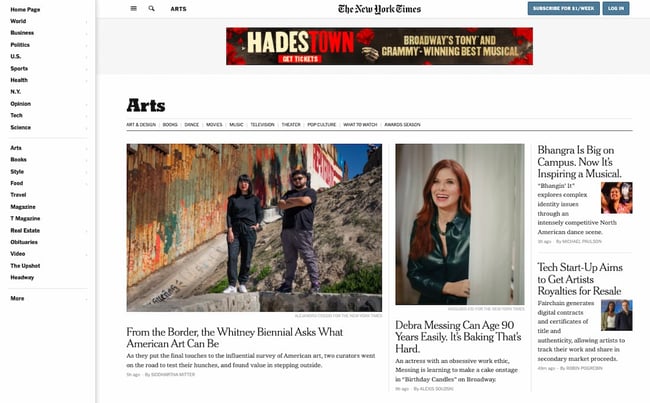A Biased View of News Websites
A Biased View of News Websites
Blog Article
4 Simple Techniques For News Websites
Table of ContentsSee This Report on News WebsitesNews Websites Fundamentals ExplainedThe smart Trick of News Websites That Nobody is DiscussingWhat Does News Websites Do?See This Report on News Websites
It was down in the UK and Brazil however up a few other nations, such as Greece, Bulgaria, and Poland (News Websites). This year, for the very first time, we asked about the different manner ins which people avoid the news and found that around half of avoiders (53%) were trying to do so in a broad-brush or routine way for instance, by turning off the radio when the information came on, or by scrolling past the information in social networkse.g. scrolling previous information, altering networks when information comes on. of avoiders check resources much less commonly. e.g. restriction to particular times of day, shutting off notifications, etc. of avoiders stay clear of some topics. e.g. topics that reduce state of mind or rise anxiety. You said that you try to actively prevent information.

I'm probably choosing to learn more light-hearted tales than I used to at the moment. M, 51, UK Switching my back on information is the only way I feel I can cope often. I have to knowingly make the initiative to avert for the purpose of my own mental wellness.
News Websites Things To Know Before You Get This
Discerning evasion of Ukraine news was highest possible in a number of the countries closest to the dispute, strengthening searchings for from our extra survey in 2014, right after the battle had started. Our data may not recommend an absence of rate of interest in Ukraine from close-by countries yet rather a desire to manage time or protect psychological wellness from the really genuine horrors of battle.
Contrasting Finland with a politically polarised nation such as the USA (see following graph) that is much less impacted by the battle, we locate a very various pattern of subject evasion. In the United States, we discover that consumers are most likely to prevent topics such as nationwide politics and social justice, where disputes over problems such as gender, sexuality, and race have come to be highly politicised.
American politics are quite harmful these days. I find occasionally that I have to disconnect from stories that just make me upset. F, 61, United States For some people, bitter and dissentious political disputes are a factor to switch off information completely, but also for some political upholders, evasion is often about blocking out viewpoints you don't want to hear.

The Single Strategy To Use For News Websites
Some are looking to make information much more accessible for hard-to-reach groups, broadening the information agenda, commissioning even more motivating or positive information, or accepting constructive or solutions journalism that give people a feeling of hope or individual company. In our study this year, we asked respondents concerning their interest in these different methods.
This clarifies why stories like Ukraine or nationwide politics carry out well with information regulars but can at the exact same time transform less interested individuals away (News Websites). Selective avoiders are less curious about all sorts of information than non-avoiders but in relative terms Check This Out they do seem to be a lot more curious about positive or solutions-based news

News Websites - The Facts
2023). This might hold true in the moment, however in time it seems to be leaving many individuals empty and less satisfied, which might be weakening our link with and trust in the information. Throughout markets, general rely on information (40%) and rely on the sources people use themselves (46%) are down by an even more 2 percent points this year.
Certainly, via the rear-view mirror, the COVID-19 trust bump is clearly visible in the following chart, though the instructions of travel afterwards has been mixed. Sometimes (e.g. Finland), the depend on boost has actually been preserved, while in others the upturn looks even more like a blip in a story of ongoing lasting decline.
Some of the highest reported levels of media criticism are found in nations with highest degree of mistrust, such as Greece, the Philippines, the USA, France, and the United Kingdom. The most affordable degrees of media criticism frequent those with higher degrees of depend on, such as Finland, Norway, Denmark, and Japan.
The 4-Minute Rule for News Websites
This year we asked participants regarding their choices for text, audio and video when consuming information online. Typically, we discover that the bulk still favor to read the information (57%), instead click for more than watch (30%) or listen to it (13%), but younger people (under-35s) are more most likely to pay attention (17%) than older groups.
Behind the standards we find significant and unusual country differences. In markets with a strong analysis practice, such as Finland and the UK, around 8 in ten still favor to read online news, yet in India and Thailand, around 4 in 10 (40%) state they favor to view news online, and in the Philippines that proportion is over half (52%).
Report this page